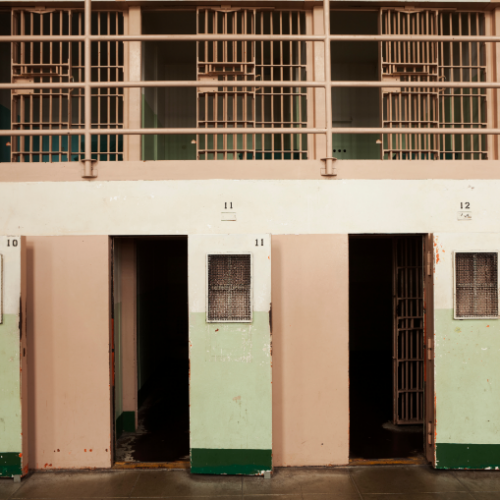This Second Chance Month, The Council of State Governments Justice Center staff asked governors from states across the country why reentry is important to them and the communities they govern. Below, find Arkansas Governor Asa Hutchinson’s reasons why #ReentryMatters.
What does reentry mean to you?
Reentry is a second chance for a person who’s been incarcerated. At some point in life, every one of us needs a second chance to recover from a mistake, and usually, we get that second chance. For people who have been convicted of a crime, a second chance can mean greater opportunity for a productive life. As governor, I’ve made a priority of exploring ways that we give the people inside our prisons and jails a bona fide second chance by preparing them for life before they leave prison.
In the past decade, what progress have you seen in your state regarding reentry?
We have made much progress in the past five years, in large part because leaders in the faith-based community have stepped up to partner with the state regarding reentry and our foster-care system. Those issues are inextricably bound. For success in either area we must have success in both. We must reduce the rate of recidivism among people who have been previously involved with the justice system, and we must shepherd our children to keep them from making the choices that send them to prison.
This came about during my first year in office, after I sponsored a summit to explore both issues. I invited 500 pastors and representatives from faith-based organizations; the most important result of that summit was the creation of a nonprofit called Restore Hope, which focused on the foster-care system and prison reentry programs.
On a grant application for Restore Hope, the leaders said their aim was “to reduce the number of children entering our state’s foster care system and reverse the growing rate of incarceration.”
The beauty of this approach is that it combines the best thinking of leaders from the private and faith-based sectors with the experience and resources of the state’s human-services and state corrections infrastructure.
What issue—or issues—related to reentry do you want to address in your state in 2019?
A key issue to successful reentry is access to employment. I have made a practice of encouraging business people to give people who have criminal records the benefit of a chance. Sometimes, all it takes is for one person to believe in the worth and value of another to change the course of a person’s life. My hope is that we can get to the place where employers aren’t deterred from hiring a person simply because he checked the ‘have you ever been convicted of a crime’ box on the employment application.
A positive school experience, where a child feels secure, is essential for their well-being. However, for many children…
Read MoreWhen returning to their communities from criminal justice settings, people with behavioral health needs face barriers in accessing…
Read More Supporting Children of Incarcerated Parents: Reimagining School and Community Collaboration
Supporting Children of Incarcerated Parents: Reimagining School and Community Collaboration
A positive school experience, where a child feels secure, is essential for…
Read More Bridging Communities and Correctional Systems: Q&A with CSG Justice Center Advisory Board Member Commissioner Nicholas Deml
Read More
Bridging Communities and Correctional Systems: Q&A with CSG Justice Center Advisory Board Member Commissioner Nicholas Deml
Read More
 Assigned to the Cloud Crew: The National Incarceration Association’s Hybrid Case Management for People with Behavioral Health Needs
Assigned to the Cloud Crew: The National Incarceration Association’s Hybrid Case Management for People with Behavioral Health Needs
When returning to their communities from criminal justice settings, people with behavioral…
Read More Meet the Medicaid and Corrections Policy Academy Mentor States
Meet the Medicaid and Corrections Policy Academy Mentor States
New Hampshire Department of Corrections Commissioner Helen Hanks presents at the Medicaid…
Read More Taking the HEAT Out of Campus Crises: A Proactive Approach to College Safety
Taking the HEAT Out of Campus Crises: A Proactive Approach to College Safety
The sharp rise in school shootings over the past 25 years has…
Read More










